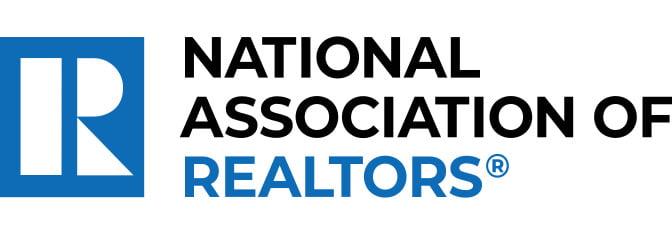A Step-by-Step Guide to Buying a Home for Buyers
Buying a home is an exciting milestone, but it can also feel overwhelming if you don’t know where to start. Don’t worry—this guide will walk you through the home-buying process step by step. By the end, you’ll have a clear understanding of what to expect and how to make your dream of homeownership a reality.
Step 1: Assess Your Finances
Before you start looking at houses, it’s important to understand your financial situation. Buying a home is an important emotional and financial decision. Here’s how to get started:
Check Your Credit Score: A good credit score can help you qualify for a mortgage with a lower interest rate. If your score needs improvement, take steps to boost it, such as paying off debt or correcting errors on your credit report. A good loan officer will recommend the best steps to boost your credit score.
Determine Your Budget: Look at your income, expenses, and savings to figure out how much you can afford for a down payment and monthly mortgage payments. You may surprised while working with your lender or loan officer how much you can afford, it may be more than you think!
Save for a Down Payment: Most buyers need to save 5-20% of the home’s price for a down payment. Additionally, set aside money for closing costs, which are typically 2-5% of the purchase price.
Step 2: Get Pre-Approved for a Mortgage
A mortgage pre-approval shows sellers that you’re a serious buyer and helps you understand how much you can borrow. This is NOT the same as pre-qualification. Pre-qualifications are online surveys that do not mean anyhting in terms of an offer; however, they are good for you to get a rough estimate. It is always recommended to work directly with your lender for exact numbers. Here’s what to do:
Shop Around for Lenders: Compare mortgage rates and terms from multiple lenders to find the best deal.
Gather Necessary Documents: Lenders will ask for proof of income, tax returns, bank statements, and other financial documents.
Receive Your Pre-Approval Letter: Once approved, you’ll get a letter stating how much the lender is willing to loan you. Keep this handy when you start house hunting. A typical Debt to Income (DTI) ratio is 36% and Housing Cost Ratio (HCR) is 28%.
- Do Not Move Money Around or Make Large Purchases: Once pre-aproved, it is very important to not move money around or make large purchases. Typically savings have to be ‘seasoned’ for 60 days. Moving money around may cause delays with the lender verifying your financial status.
Step 3: Find a Real Estate Agent
A knowledgeable real estate agent can make the home-buying process smoother and less stressful. They’ll help you find homes that fit your criteria, negotiate with sellers, and guide you through the transaction. Ask for recommendations, read reviews, and interview a few agents before making your choice. Here is my guide to explain the benefits of using an agent and updated real estate process with the NAR settlement.

Step 4: Start House Hunting
Now comes the fun part—looking at homes! Here are some tips to make the most of your search:
Make a List of Must-Haves: Consider your needs and wants, such as the number of bedrooms, location, and yard size. Prioritize what’s most important to you.
Attend Open Houses and Showings: Visit homes in person to get a feel for the space and neighborhood. Take notes and pictures to remember details.
Be Realistic: While it’s great to dream, focus on homes within your budget to avoid disappointment.
Step 5: Make an Offer
When you find the right home, it’s time to make an offer. Your agent will help you determine a fair price based on comparable sales in the area. The offer will include:
Purchase Price: The amount you’re willing to pay for the home.
Contingencies: Conditions that must be met for the sale to go through, such as a home inspection or financing approval.
Earnest Money Deposit: A small amount of money (usually 1-3% of the purchase price) to show the seller you’re serious. This is applied toward your down payment if the offer is accepted. See my EMD guide here!
Step 6: Conduct a Home Inspection
Once your offer is accepted, schedule a home inspection. A professional inspector will check the home’s condition and identify any potential issues, such as:
Structural problems
Plumbing or electrical issues
Roof or foundation damage
If the inspection reveals major problems, you can negotiate with the seller to make repairs, lower the price, or even cancel the deal.
Step 7: Secure Your Financing
Now it’s time to finalize your mortgage. Your lender will work with you to:
Lock in Your Interest Rate: Secure a fixed rate to protect against market fluctuations.
Complete the Loan Application: Provide any additional documents the lender needs to process your loan.
Receive Loan Approval: Once approved, you’ll get a closing disclosure outlining the loan terms and costs.

Step 8: Close the Deal
Closing is the final step in the home-buying process. See my guide on what you expect at closing.
Review Documents: Carefully review all paperwork, including the closing dicslosure, settlement statement, loan agreement, title transfer, and any other documents. The title company will prepare the final closing documents for you.
Pay Closing Costs: These typically include lender fees, title insurance, and property taxes. These items are almost always included in the settlement statement and handled by the title company.
Sign the Paperwork: Once everything is signed, you’ll receive the keys to your new home.
Step 9: Move In and Celebrate
Congratulations, you’re officially a homeowner! Plan your move, set up utilities, and start making the space your own. Don’t forget to celebrate this major milestone.
Final Tips for a Smooth Home-Buying Experience
Stay Organized: Keep track of deadlines, documents, and communications with your agent and lender.
Be Flexible: The process can sometimes take longer than expected, so stay patient and adaptable.
Ask Questions: Don’t hesitate to ask your agent, lender, inspector, or legal counsel for clarification if something isn’t clear. It is always encouraged to seek legal counsel. Take your time with the title company at closing.
Buying a home is a big decision, but with the right preparation and guidance, it can be an exciting and rewarding journey. Happy house hunting!










